ISO certification is more than just a badge of honor for businesses; it is a commitment to quality, efficiency, and trust. In today’s globalized world, companies are expected to meet specific standards to gain credibility and stay competitive. But what exactly is ISO certification, and how can it benefit your business? Let’s break it down in simple terms.
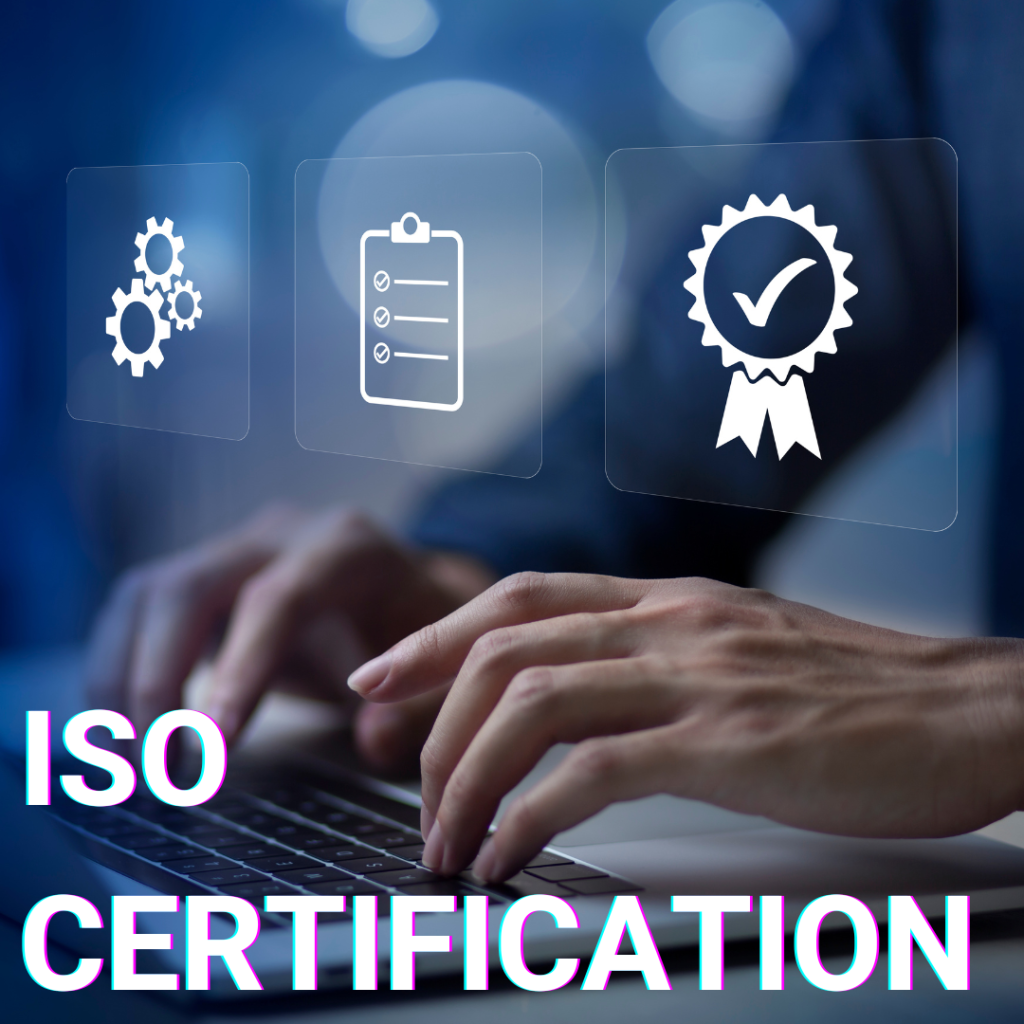
Table of Contents
What is ISO Certification?
ISO stands for the International Organization for Standardization, an independent, non-governmental body that develops standards for various industries. These standards ensure consistency in areas such as quality, safety, efficiency, and environmental responsibility.
ISO certification is a formal acknowledgment that your business adheres to these international standards. It’s awarded after a thorough audit by a certified third-party body. Think of it as a seal of approval that reassures customers, partners, and regulators of your commitment to excellence.
But ISO isn’t just about ticking boxes. It’s about adopting practices that lead to better products, happier customers, and more efficient operations. It’s a long-term investment in your business’s success.
Why is ISO Certification Important?
Achieving ISO certification isn’t just about following rules—it’s about creating a system that continuously improves your business. Here’s why it matters:
1. Builds Trust
ISO certification demonstrates reliability and professionalism, giving your customers confidence in your products or services. It shows that your business takes quality and safety seriously.
2. Opens New Markets
Many global markets require ISO-certified suppliers. If your business wants to expand internationally or attract large clients, ISO certification can be the key to unlocking new opportunities.
3. Improves Efficiency
Following ISO standards helps streamline processes, reduce waste, and optimize resources. This can lead to significant cost savings and better use of time and materials.
4. Enhances Employee Morale
Employees benefit from clear processes and better working environments. ISO standards ensure that everyone knows their role and responsibilities, which can lead to higher job satisfaction and productivity.
5. Increases Revenue
With improved trust and access to bigger markets, your business is likely to grow. Customers prefer working with ISO-certified companies because it guarantees consistent quality and reliability.
Types of ISO Certifications Your Business Should Know
There are hundreds of ISO standards, but here are five of the most relevant certifications for businesses:
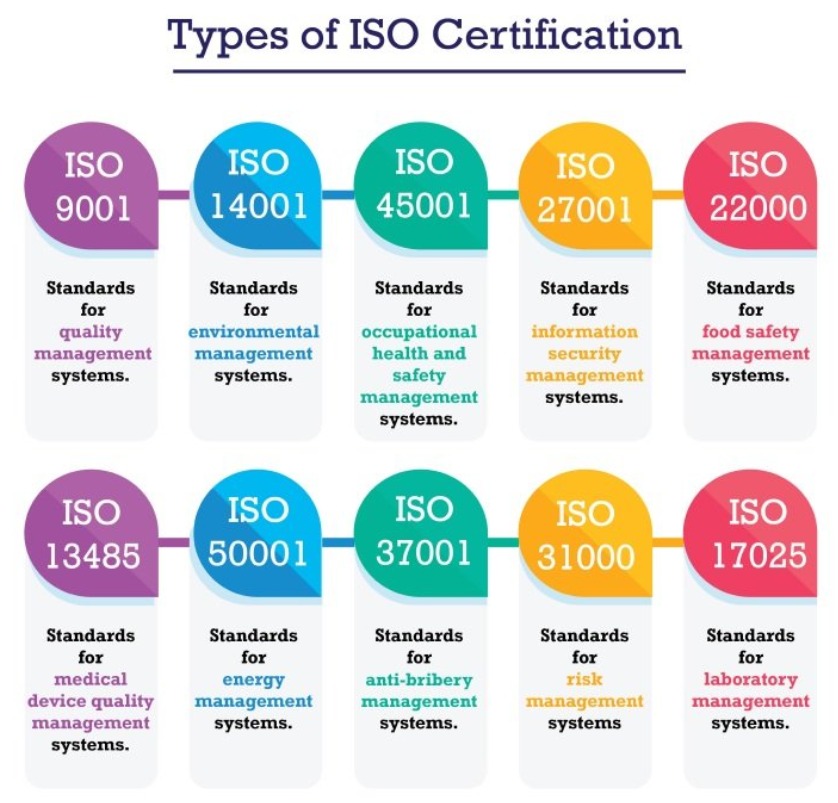
1. ISO 9001 – Quality Management Systems
This is the most widely recognized ISO certification. ISO 9001 focuses on improving product and service quality, ensuring customer satisfaction, and enhancing operational efficiency.
What Does It Cover?
ISO 9001 includes principles like customer focus, leadership, engagement of people, process approach, and continual improvement. It’s all about delivering consistent quality.
Best for: Businesses of all sizes across all industries, especially those in manufacturing, retail, and service sectors.
2. ISO 14001 – Environmental Management Systems
ISO 14001 helps businesses reduce their environmental impact by implementing sustainable practices. This certification is particularly relevant in today’s eco-conscious market.
What Does It Cover?
This standard focuses on environmental aspects such as waste management, energy efficiency, and pollution control. It helps organizations comply with environmental laws and improve their green credentials.
Best for: Industries with significant environmental footprints, such as construction, energy, and manufacturing.
3. ISO 27001 – Information Security Management Systems
This certification focuses on protecting sensitive data from cyber threats. ISO 27001 ensures that businesses have a robust system for managing information security.
What Does It Cover?
It involves risk assessment, data protection, and implementing security controls to safeguard information. This standard is critical in an era of increasing cyberattacks.
Best for: IT companies, financial institutions, and any business handling confidential data.
4. ISO 45001 – Occupational Health and Safety
ISO 45001 aims to improve workplace safety by identifying and mitigating risks. It ensures a safer working environment for employees.
What Does It Cover?
This standard focuses on preventing work-related injuries and illnesses. It helps businesses create a safe, healthy workplace while complying with legal requirements.
Best for: High-risk industries like construction, manufacturing, and logistics.
5. ISO 50001 – Energy Management Systems
ISO 50001 helps organizations manage their energy usage more effectively, reducing costs and environmental impact. It’s a great way to demonstrate your commitment to sustainability.
What Does It Cover?
This standard focuses on energy efficiency, monitoring energy consumption, and reducing greenhouse gas emissions. It’s perfect for businesses looking to improve their environmental footprint.
Best for: Energy-intensive industries like manufacturing, utilities, and transportation.
Does Your Business Need ISO Certification?
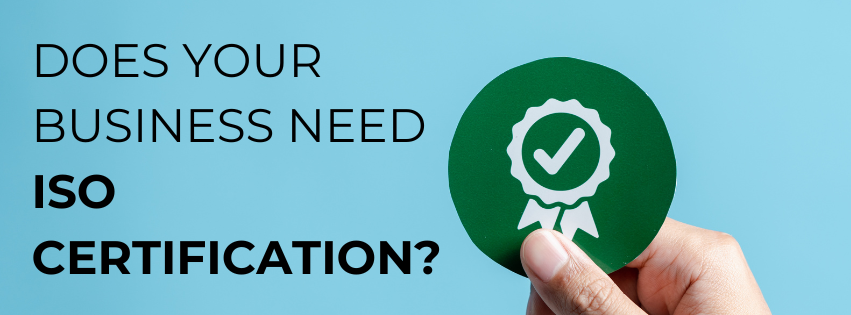
The answer depends on your goals, industry, and target market. Here are a few scenarios where ISO certification can be a game-changer:
1. Attracting Bigger Clients
Many large corporations require suppliers to be ISO certified. Certification shows that your business meets high-quality standards, making you a more attractive partner.
2. Expanding Internationally
Global markets often demand compliance with ISO standards. Certification can be the ticket to operating on an international scale.
3. Improving Internal Processes
ISO standards provide a clear framework for operational excellence. This can lead to better resource management and higher productivity.
4. Operating in Regulated Industries
If your industry is heavily regulated, ISO certifications help meet legal and regulatory requirements, reducing the risk of penalties and ensuring compliance.
5. Enhancing Brand Reputation
ISO certification signals reliability and excellence to your stakeholders. It’s a powerful marketing tool that can differentiate your business from competitors.
How to Get ISO Certified
Getting ISO certified involves these key steps:
1. Identify the Right Standard
Choose the ISO certification that aligns with your business goals. Whether it’s improving quality, securing data, or managing energy, there’s a standard for you.
2. Prepare Your Business
Implement the necessary processes and systems to meet the standard’s requirements. This may involve training employees, creating documentation, and updating procedures.
3. Conduct an Internal Audit
Perform a self-assessment to identify gaps in your processes. This step helps you prepare for the official audit.
4. Hire a Certification Body
Work with an accredited third-party body to perform the final audit. They will evaluate your compliance with the standard’s requirements.
5. Achieve Certification
Once you pass the audit, you’ll receive your certification. Remember, this isn’t a one-time process—regular audits ensure continued compliance.
Common Myths About ISO Certification
Myth 1: It’s Only for Large Companies
Reality: ISO certification benefits businesses of all sizes. Even small companies can improve efficiency and gain credibility through certification.
Myth 2: It’s Too Expensive
Reality: While there is an initial cost, the long-term benefits like increased revenue and efficiency often outweigh the investment.
Myth 3: It’s All About Paperwork
Reality: ISO certification is about building better processes, not just documentation. It’s a practical framework for continuous improvement.
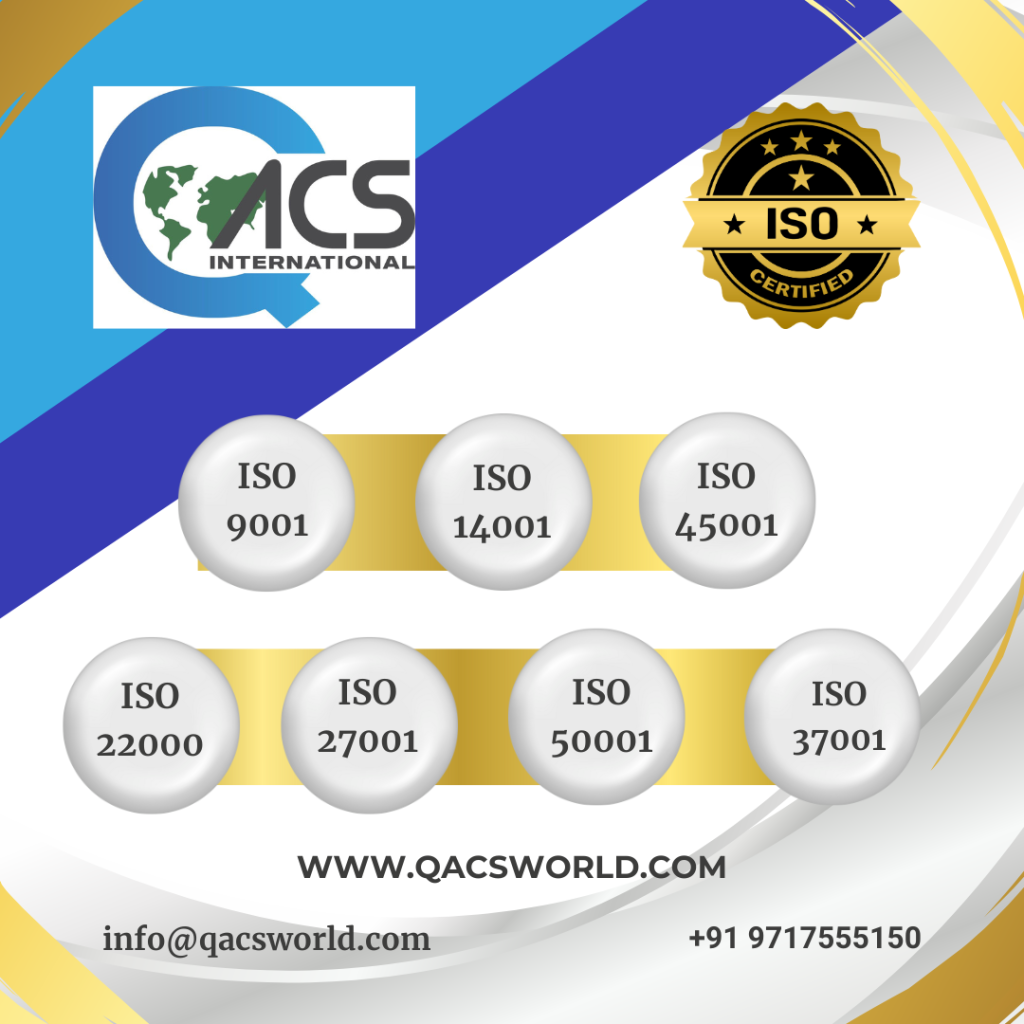
Conclusion
ISO certification isn’t just a requirement; it’s a strategic advantage. It boosts credibility, improves efficiency, and opens doors to new opportunities. Whether you’re a small business or a large corporation, there’s likely an ISO standard that aligns with your goals. All-in-all it is a powerful tool for organizations of all sizes and industries to enhance their operations, reputation, and credibility. By implementing ISO standards, companies can improve customer satisfaction, streamline processes, reduce risks, and ultimately thrive in a competitive global market.
While the certification process may seem daunting at first, the long-term benefits far outweigh the initial efforts. So, if you’re passionate about taking your company to new heights, consider obtaining ISO certification and enjoy the rewards it brings.
QACS International is one of the leading names in the world of ISO certification in India. We provide system certification according to ISO 9001:2015, ISO 14001:2015, ISO 22000:2018, ISO 37001, ISO 45001;2018, ISO 27001, ISO 13485, ISO 20000-1, CE, Kosher, Halal and other international standards in India & Abroad.
For more information on this please visit our website, QACSworld and get an ISO certification today.

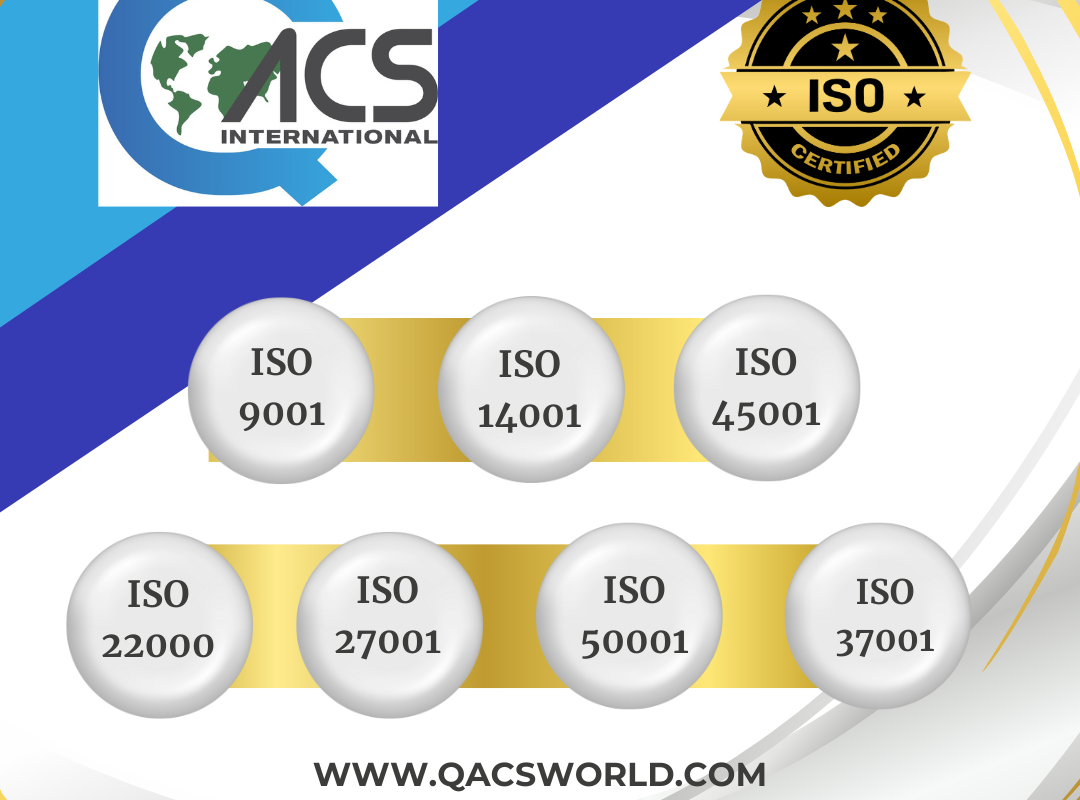



Hi! I could have sworn I’ve been to this site before but after reading through some of the post I realized it’s new
to me. Anyways, I’m definitely happy I found it and I’ll be book-marking and checking back frequently!